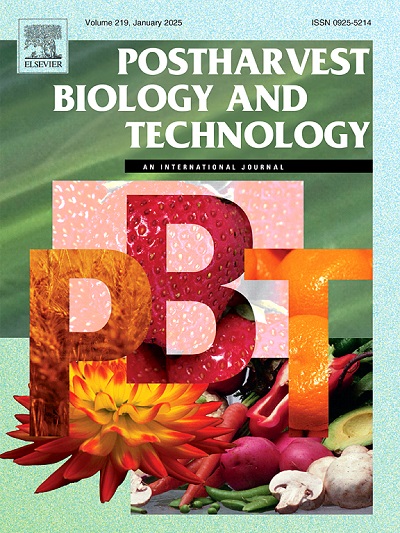Exogenous spermidine promotes the formation of the closing layer at potato tuber wounds by inducing polyamine synthesis and phenylpropanoid metabolism
IF 6.4
1区 农林科学
Q1 AGRONOMY
引用次数: 0
Abstract
Spermidine (Spd) is an essential polyamine in plants. Although there are reports that exogenous Spd can enhance the synthesis of endogenous polyamines and induce plant resistance, it remains unknown whether exogenous Spd affects the formation of the potato tuber wound closing layers by modulating polyamine synthesis and phenylpropanoid metabolism. This study found that Spd enhanced the gene expression and activity of arginine decarboxylase (ADC), ornithine decarboxylase (ODC) and S-adenosylmethionine decarboxylase (SAMDC), leading to an increase in the levels of Put, Spd, and Spm. Additionally, Spd increased the activity of phenylalanine ammonia-lyase (PAL), 4-coumaroyl-CoA ligase (4CL), and cinnamyl alcohol dehydrogenase (CAD), and elevated the levels of five phenolic acids and three lignin monomers. Furthermore, Spd increased the gene expression and activity of peroxidase (POD), diamine oxidase (DAO), and polyamine oxidase (PAO), resulting in an increase in the level of H2O2. The aforementioned phenolic acids and lignin monomers are oxidized and cross-linked under the combined action of POD and H2O2 to form suberin polyphenols (SPP) and lignin, which are deposited on the wound surface. The competitive inhibitor D-arginine (D-Arg) from ADC and the specific inhibitor guazatine (GZ) from PAO can delay the deposition of SPP and lignin by inhibiting polyamine synthesis, reducing the levels of phenolic acids and lignin monomers, and inhibiting POD activity and H2O2 production. In conclusion, exogenous Spd can promote the deposition of the closing layer on potato tuber wounds by promoting endogenous polyamine synthesis and phenylpropanoid metabolism.
外源亚精胺通过诱导多胺合成和苯丙氨酸代谢促进马铃薯块茎伤口闭合层的形成
本文章由计算机程序翻译,如有差异,请以英文原文为准。
求助全文
约1分钟内获得全文
求助全文
来源期刊

Postharvest Biology and Technology
农林科学-农艺学
CiteScore
12.00
自引率
11.40%
发文量
309
审稿时长
38 days
期刊介绍:
The journal is devoted exclusively to the publication of original papers, review articles and frontiers articles on biological and technological postharvest research. This includes the areas of postharvest storage, treatments and underpinning mechanisms, quality evaluation, packaging, handling and distribution of fresh horticultural crops including fruit, vegetables, flowers and nuts, but excluding grains, seeds and forages.
Papers reporting novel insights from fundamental and interdisciplinary research will be particularly encouraged. These disciplines include systems biology, bioinformatics, entomology, plant physiology, plant pathology, (bio)chemistry, engineering, modelling, and technologies for nondestructive testing.
Manuscripts on fresh food crops that will be further processed after postharvest storage, or on food processes beyond refrigeration, packaging and minimal processing will not be considered.
 求助内容:
求助内容: 应助结果提醒方式:
应助结果提醒方式:


